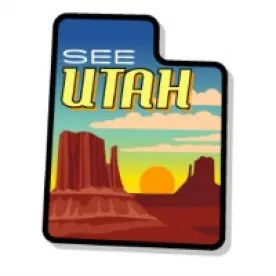On Friday, February 25, 2022, the Utah Senate unanimously passed SB 227, or the Utah Consumer Privacy Act.
Controllers and Processors Beware
SB 227 is an omnibus privacy bill that shares similarities with the Virginia Consumer Data Protection Act and the Colorado Privacy Act. For instance, the bill imposes different obligations on a covered business depending on whether the business is acting as a controller (one who determines the purposes for processing data, alone or in coordination with others) or processor (one who processes data on behalf of a controller).
Controllers are responsible for transparency, purpose specification, and data minimization. They must also obtain the consumer’s consent for any secondary uses, and must honor consumer rights (generally within 45 days of receipt of the consumer’s request). Controllers are also responsible for safeguarding data privacy and security, non-discrimination, non-retaliation, and non-waiver of consumer rights. Controllers are prohibited from processing certain data qualifying as “sensitive data” without first presenting the consumer with clear notice and providing an opportunity to opt-out of processing.
Processors must follow a controller’s instructions and must enter into a contract that incorporates certain enumerated requirements (e.g., requirements pertaining to duty of confidentiality and data privacy and security safeguards) before processing data on behalf of the controller.
Applicability
The bill applies to:
-
Businesses who (a) (i) conduct business in Utah; or produces a product or service targeted to consumers who are Utah residents; (b) has an annual revenue of $25,000,000 or more; and (c) satisfies one of more of certain enumerated thresholds (e.g., controls or processes the personal data of 100,000 or more consumers; or derives over 50% of gross revenue from the sale of personal data);
-
“Personal Data,” which is information that can be linked (or is reasonably linkable to) an identified or identifiable individual, with exclusions; and
-
“Biometric data,” which is “automatic measurements of an individual’s unique biological characteristics” that can identify a specific individual, excluding, among others, photographs or video recordings (or data derived from either).
The bill does not apply to, among others:
-
Government entities;
-
Business entities that are covered entities or business associates pursuant to the Health Insurance Portability and Accountability Act (“HIPAA”); and
-
Information subject to HIPAA, the Federal Credit Reporting Act (“FCRA”), the Gramm-Leach-Bliley Act (“GLBA”), or the federal Drivers Privacy Protection Act (“DPPA”).
Consumer Rights
The bill protects “consumers,” which are individuals who are Utah residents acting in an individual or household context, not in an employment or commercial context. Consumers would have the rights of access, correction, deletion, portability, and right to opt-out of certain processing. Consumers also have a right to opt-out of certain processing, including the “sale” of personal data.
The parents or legal guardians of consumers who are children (under 13 years old) may exercise consumer rights on behalf of the child. The personal data of children is considered “sensitive data” under the Utah Consumer Privacy Act. The bill as currently drafted requires controllers to process the personal data of known children according to the requirements of the federal Children’s Online Privacy Protection Act (“COPPA”).
No Right of Private Action
The bill as currently drafted does not grant a private right of action and explicitly precludes consumers from using a violation of the Act to support a claim under other Utah laws, such as laws regarding unfair or deceptive acts or practices.
Risk of Enforcement Action
The Utah Consumer Privacy Act grants exclusive enforcement authority to the Utah Attorney General. However, before the Attorney General initiates an enforcement action, the Attorney General must first provide the allegedly non-compliant business with (1) written notice (30 days before initiating enforcement action) and (2) an opportunity to cure (30 days from receipt of the written notice).
Prior Legislative History
The Utah Consumer Privacy Act was previously introduced in 2021 (as S 200) and in 2020 (as S 429). In 2021, S 200 passed the first and second Senate floor readings, but failed to get a third Senate floor reading despite a substitute bill and fiscal note being distributed. The Utah legislature closes on March 4, 2022.
Update as of March 3, 2022
The Utah Legislature website reports that on March 2, 2022, SB 227 passed its third reading in the House and was returned to the Senate with minimal amendments. Specifically, a new line was inserted in the portion of the definition for “Biometric Data” that makes clears that “information captured from a patient in a health care setting” is not biometric data.
What’s Next
In Utah, if a chamber passes a bill with amendments, the “the bill is sent back to originating [chamber] for concurrence of the amendment.” Here, SB 227 passed in the Senate (where it was first introduced), then passed in the House with amendments, and afterwards was sent back to the Senate for concurrence.
If all goes well and the Senate accepts the House amendments, SB 227 will be delivered to the Governor for action. The Governor has 20 days from adjournment to (1) sign (or not sign the bill), after which the bill becomes law; or (2) veto the bill, in which case the bill does not become a law unless the Governor’s veto is overridden by the legislature.
Utah is inching closer to passing the Utah Consumer Privacy Act.






 />i
/>i

